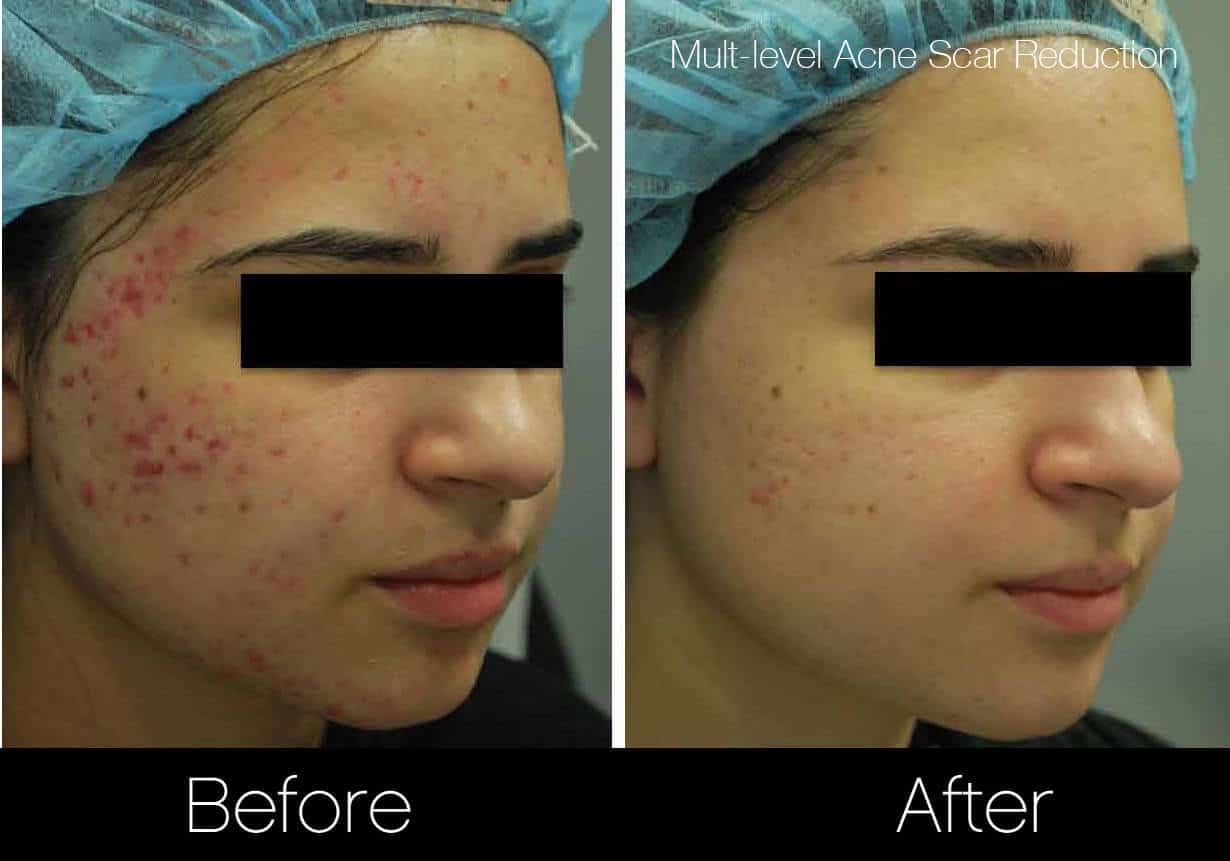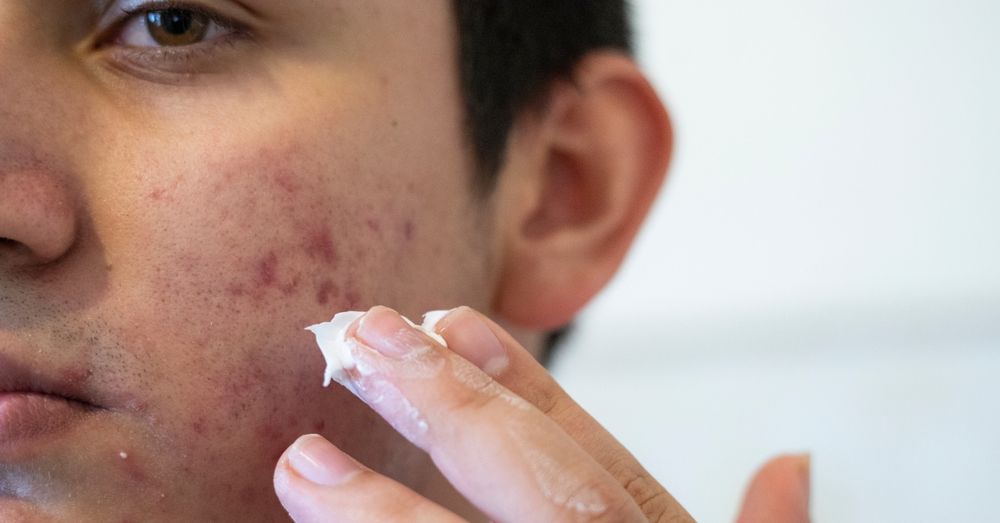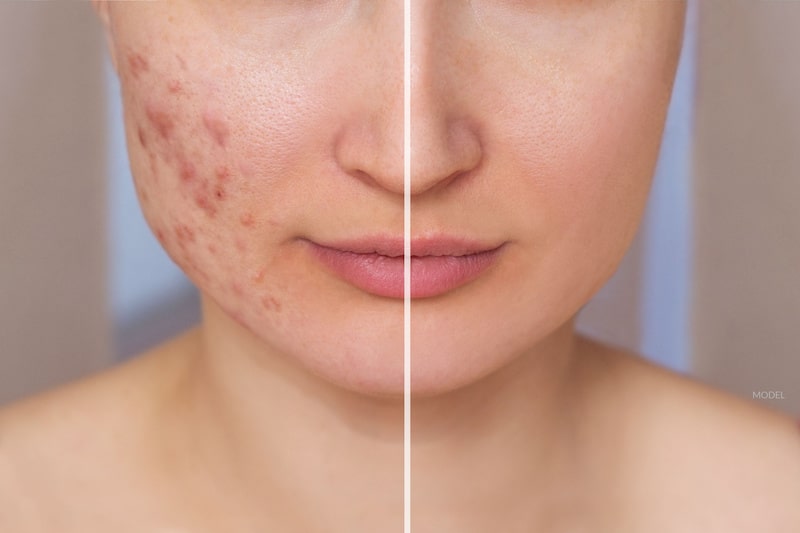Skin Rejuvenation Treatments: Renew Your Skin and Decrease Acne Scars
Skin Rejuvenation Treatments: Renew Your Skin and Decrease Acne Scars
Blog Article
Understanding the Various Skin Problem and Effective Therapy Options for Acne Marks
Acne scars represent a complex interplay of skin problems that considerably effect people' self-confidence and overall skin health and wellness. As we explore the landscape of acne scar monitoring, it becomes apparent that the journey towards clearer skin might include more than simply topical options.
Types of Acne Scars

In comparison, hypertrophic scars result from an overflow of collagen during the recovery procedure, causing elevated areas on the skin. These scars are often solid and can differ in shade, occasionally showing up red or darker than the bordering skin.
Recognizing these types of acne scars is vital for developing an effective treatment plan - skin rejuvenation treatments. Choices might include chemical peels, laser treatment, microneedling, or facial fillers, tailored to the particular mark kind. A detailed consultation with a skin specialist can help figure out one of the most appropriate treatment, thinking about the individual's skin kind, mark extent, and total skin wellness
Sources Of Acne Scarring
Marking takes place as an outcome of the body's all-natural recovery feedback to inflammation and injury brought on by acne lesions. When acne kinds, it activates an inflammatory reaction, bring about the launch of various cytokines and development aspects that advertise recovery. This procedure can in some cases lead to extreme tissue formation or poor repair service, resulting in scars.
The key sources of acne scarring include the extent of the acne itself, duration of the sores, and individual skin kinds. Extreme inflammatory acne, such as nodules and cysts, is more probable to cause scarring as a result of much deeper tissue damages. Furthermore, improper handling of acne sores, such as picking or squeezing, can intensify cells injury and swelling, boosting the likelihood of scarring.
Genetic tendency likewise plays a significant role; people with a family members history of scarring go to a greater danger. Skin kind and color can affect mark development, as darker skin tones might experience post-inflammatory hyperpigmentation, while lighter skin may develop atrophic scars.
Ultimately, recognizing these causes is necessary in handling acne and mitigating the potential for scarring.

Therapy Options for Scarring
Reliable therapy choices for acne scarring vary depending upon the kind and intensity of the marks. Generally classified into atrophic, hypertrophic, and keloid marks, these conditions need customized strategies for optimal outcomes.
For atrophic scars, which are identified by a loss of cells, therapies such as chemical peels, microdermabrasion, and laser therapy are frequently utilized. These approaches advertise skin revival and stimulate collagen production, consequently boosting skin appearance. Subcision, a minimally intrusive procedure, can additionally be reliable by breaking up coarse bands beneath the skin.
Hypertrophic and keloid scars can be extra testing to deal with. Alternatives consist of corticosteroid shots to minimize inflammation and flatten the scars. Sometimes, cryotherapy or laser treatment might be advised to lessen their look.
Surgical alternatives are available for extreme scarring, where excision or skin grafting might be required. It's necessary for individuals to speak with a dermatologist to examine their particular scar kind and review one of the most appropriate treatment plan. Incorporating several therapies frequently produces the very best end results, ensuring that each patient's distinct skin problem is addressed effectively.
Home Treatments and All-natural Solutions
All-natural special info options and natural remedy can supply an available strategy for individuals looking for to boost her comment is here the appearance of acne scars (acne treatment for sensitive skin). Numerous ingredients found in the home kitchen area have actually demonstrated prospective advantages in enhancing skin structure and advertising recovery

One more reliable option is lemon juice, which functions as an all-natural exfoliant and can lighten hyperpigmentation. Nevertheless, it should be made use of cautiously, as it might trigger photosensitivity. Oat meal masks are also useful; their gentle exfoliation can aid eliminate dead skin cells while relaxing irritability.
Essential oils, such as tea tree oil and lavender oil, can even more support scar recovery due to their antimicrobial properties. It is essential to execute a spot examination before using any remedy to guarantee there are no damaging responses. These all-natural remedies can be i thought about this a corresponding method in the journey to reduce acne marks.
Stopping Future Scarring
Taking on a proactive strategy to skincare can significantly lower the danger of establishing future acne marks. Among the essential approaches is to take care of acne successfully as it arises. This includes making use of non-comedogenic skin care products and medicines prescribed by dermatologists that target acne without irritating the skin. Routine cleansing, peeling, and hydration can help preserve skin health and avoid clogged up pores.
Additionally, staying clear of the lure to choose or press acne sores is crucial, as this can lead to swelling and subsequent scarring. Instead, individuals ought to concentrate on using topical therapies that promote recovery and decrease inflammation. Active ingredients such as salicylic acid, benzoyl peroxide, and retinoids are known for their efficacy in taking care of acne and decreasing marks.
Sun defense is an additional vital part; direct exposure to UV rays can dim marks and hamper recovery. Therefore, utilizing a broad-spectrum sunscreen daily can reduce these impacts - acne treatment for sensitive skin.
Last but not least, keeping a healthy and balanced diet rich in antioxidants and remaining moisturized assistances skin regrowth. By applying these preventive steps, people can considerably reduce their risk of future scarring and promote overall skin health.
Verdict
In conclusion, a comprehensive understanding of acne scars, including both hypertrophic and atrophic types, is important for effective therapy approaches. Assessment with a dermatologist continues to be vital to create personalized approaches that think about private skin types and mark seriousness, eventually boosting the efficiency of mark monitoring methods.
Acne scars represent an intricate interaction of skin problems that dramatically effect individuals' self-confidence and general skin wellness. The 2 primary classifications of acne scars are atrophic and hypertrophic scars. These scars are additional identified right into 3 subtypes: ice pick marks, which are slim and deep; boxcar scars, which are bigger and have distinct edges; and rolling scars, which develop a wave-like appearance due to unequal skin structure.
A detailed appointment with a skin specialist can aid figure out the most proper intervention, taking into account the individual's skin kind, scar extent, and general skin health.
Appointment with a dermatologist stays important to devise tailored techniques that consider specific skin kinds and mark severity, ultimately boosting the efficacy of mark management techniques.
Report this page